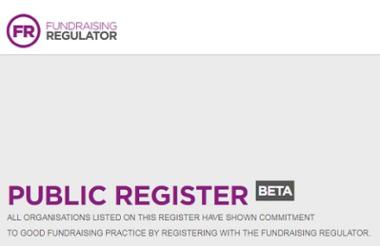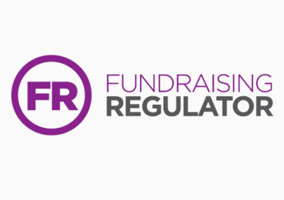The Charity Commission confirmed last week that it would be contacting the trustees of each of the charities yet to contribute to the Fundraising Regulator’s levy. Hugh Radojev writes this latest intervention risks making the levy voluntary in name only.
On Wednesday last week, the Fundraising Regulator announced it would be naming and shaming those charities that spend more than £100,000 a year on fundraising activity and have yet to contribute to its 'voluntary' levy.
As part of this announcement, the regulator said it had asked both NCVO and the Institute of Fundraising to “get in touch with the small number of those that are their members to encourage payment of the levy”. It also announced it would be sharing the list with the Charity Commission.
By the end of the week, the Charity Commission had confirmed it would use this list to contact the trustees of non-paying charities to “seek clarification on the reasons why” they had yet to contribute. The Commission would then determine whether their behaviour “falls within the reasonable range of decisions that a trustee body can make”.
Whether or not the Fundraising Regulator has done enough to convince the sector it deserves its money is a moot point. For what it’s worth, I personally believe that all charities within the levy and many more beside should contribute their fair share to regulation, if for no other reason than to keep the tabloids at bay.
Yet this co-regulatory strongarming doesn't make the levy feel in any way voluntary.
All stick and no carrot
A Charity Commission spokeswoman told Civil Society News that contacting non-levy paying charities “does not imply that we will take regulatory action against them”.
It may well be true that no regulatory action stems from this. The Commission has said time and again this year that it is under-resourced to tackle the work it already has on its plate. Making more work for itself by chasing up errant fundraising organisations on behalf of the Fundraising Regulator might not be in its best interests.
Yet, even if it has no intention of going beyond contacting these charities, the fact it is doing so is clearly meant to convey the threat of possible action being taken.
When you consider that, with the exception of a few larger organisations, the vast majority of charities yet to contribute to the levy are on the smaller side, this begins to feel like bullying.
For many smaller organisations, the risks of possibly being dragged into a compliance case or something similar by the Charity Commission may well lead to a board decision to contribute to the levy, but at the cost of providing services to beneficiaries.
Given that the Fundraising Regulator has no regulatory powers to punish those charities that don't sign up to its levy, the fact it has involved the Charity Commission seems heavy-handed. It appears that, instead of dangling a carrot in front of the sector, the regulator has opted instead for an even bigger stick.
It also raises the question of whether or not coercing small charities is really a responsible thing for the arbiters of the sector to be doing.
What does the Commission define as a ‘reasonable range of decisions’?
The Commission spokeswoman insisted the regulator didn’t have any "metrics" in mind against which to measure the responses of non-levy paying charities' trustees. She did however say the Commission “expects all trustees to ensure their organisations adhere to the accepted best practices of fundraising”, which the Commission feels the Fundraising Regulator embodies.
Yet this brings us back to the fact that the levy is a voluntary one, at least on paper, and always has been, since it was first set out in the Etherington Review.
Perhaps this is oversimplifying things, but is the decision to not contribute to a levy just as voluntary a choice as contributing? And, by extension, is a choice either way not still adhering to best practice? It would seem not.
Clearly the Fundraising Regulator, following the failure of the first round of the levy to raise the income it had hoped for, has reached out to co-regulatory organisations and various sector membership bodies to lean on the remaining holdouts.
I’m almost certain that this technique will work for the Fundraising Regulator, in the short term at least, but at what cost to its reputation?
The regulator would be better just getting on with it and moving onto a statutory footing. At least that way we could all move beyond this ongoing charade.
This article represents the views of the author at the time of writing, and not the opinions of Civil Society Media
Related Articles












